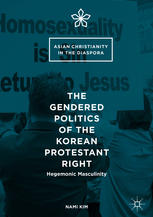

Most ebook files are in PDF format, so you can easily read them using various software such as Foxit Reader or directly on the Google Chrome browser.
Some ebook files are released by publishers in other formats such as .awz, .mobi, .epub, .fb2, etc. You may need to install specific software to read these formats on mobile/PC, such as Calibre.
Please read the tutorial at this link: https://ebookbell.com/faq
We offer FREE conversion to the popular formats you request; however, this may take some time. Therefore, right after payment, please email us, and we will try to provide the service as quickly as possible.
For some exceptional file formats or broken links (if any), please refrain from opening any disputes. Instead, email us first, and we will try to assist within a maximum of 6 hours.
EbookBell Team

4.7
86 reviewsThis book provides a critical feminist analysis of the Korean Protestant Right’s gendered politics. Specifically, the volume explores the Protestant Right’s responses and reactions to the presumed weakening of hegemonic masculinity in Korea’s post-hypermasculine developmentalism context. Nami Kim examines three phenomena: Father School (an evangelical men’s manhood and fatherhood restoration movement), the anti-LGBT movement, and Islamophobia/anti-Muslim racism. Although these three phenomena may look unrelated, Kim asserts that they represent the Protestant Right’s distinct yet interrelated ways of engaging the contested hegemonic masculinity in Korean society. The contestation over hegemonic masculinity is a common thread that runs through and connects these three phenomena. The ways in which the Protestant Right has engaged the contested hegemonic masculinity have been in relation to “others,” such as women, sexual minorities, gender nonconforming people, and racial, ethnic, and religious minorities.